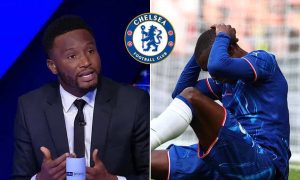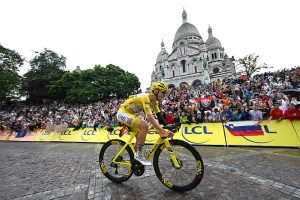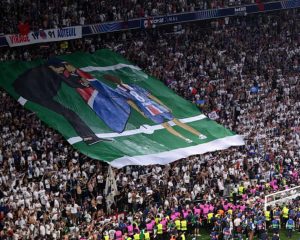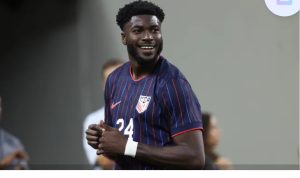
Ralf Rang nick ‘Would Never Allow’ What Manchester United Often Did in Transfer Market: ‘If I Was Sporting Director’
Former Manchester United interim manager and veteran football strategist Ralf Rang nick has never shied away from offering candid assessments of club structures and transfer policies. One of the most outspoken critics of Manchester United’s recent sporting direction, Rang nick once remarked that if he were the club’s sporting director, certain transfer decisions and broader market behavior “would never be allowed.”
Rang nick, renowned for his meticulous planning, long-term vision, and focus on data-driven recruitment, has built his reputation not on big-name signings but on building systems and identifying players before they become global stars. This philosophy put him at odds with how Manchester United operated during much of the post-Sir Alex Ferguson era, characterized by short-term thinking, manager-centric signings, and expensive transfers lacking strategic cohesion.
A History of Questionable Transfer Strategy
Manchester United have spent over a billion pounds on transfers since Ferguson retired in 2013. Despite the outlay, the results on the pitch have often fallen short of expectations. Several signings—including Ángel Di María, Paul Pogba, Romelu Lukaku, Alexis Sánchez, and Harry Maguire—came with fanfare and significant fees but often failed to make a sustained impact.
The pattern pointed to a lack of overarching vision. Managers like David Moyes, Louis van Gaal, José Mourinho, Ole Gunnar Solskjær, and Erik ten Hag each had their own styles and transfer preferences, resulting in a squad filled with mismatched parts. Rangnick’s time at United laid bare this chaotic structure.
Rangnick’s Vision
When appointed interim manager in December 2021, Rang nick made it clear that United required a massive overhaul—not just of the squad, but of their entire footballing philosophy. He openly stated that the team needed as many as “10 new players,” emphasizing that the rebuild would require at least a few transfer windows and a consistent, long-term plan.
“If I was sporting director, this is not how I would do things,” he said during his time at the club. Rang nick criticized the lack of coherent strategy and the tendency to buy players for their commercial appeal rather than tactical suitability.
Unlike United’s usual approach, Rang nick would have emphasized:
- Scouting undervalued talent: Players like Erling Harland, Sadio Mané, and Dayot Up Americano—whom he identified before they became stars—represent the type of value Rang nick seeks.
- Developing a tactical identity: Rather than shifting styles with each managerial change, he would institute a club-wide philosophy, similar to what clubs like RB Leipzig and Red Bull Salzburg follow.
- Avoiding overpaying: Rang nick has long warned against paying inflated fees or wages for players based on name recognition alone.
- Promoting from within: He values youth development and believes clubs should be brave in trusting academy products.
Why United’s Structure Clashed With Rangnick’s Ideals
During his interim tenure, Rang nick also assumed a consultancy role meant to extend beyond his six-month managerial stint. The idea was for him to guide the club’s long-term planning and support the appointment of a new manager. However, his consultancy role never materialized in any meaningful way.
By summer 2022, Erik ten Hag had been appointed manager, and Rangnick was effectively sidelined. He quickly moved on to become the head coach of the Austrian national team.
This breakdown highlighted a crucial issue: United lacked the kind of football governance structure where a figure like Rang nick could operate effectively. In most modern elite clubs, the sporting director has the final say on recruitment, with managers fitting into a broader project. At United, however, power often centered around the manager, executive vice-chairman Ed Woodward (until 2022), and later, director of football John Murtough.
Rangnick’s model was the opposite. “It’s not about signing the best players, but the right ones,” he often said. He argued that without alignment between recruitment and football philosophy, success would be inconsistent.
The Missed Opportunity?
Some fans and pundits argue that United missed a golden opportunity by not leveraging Rangnick’s vast network and strategic mind. His legacy is visible across Europe—from shaping RB Leipzig’s rise to influencing coaches like Jürgen Klopp and Thomas Tuchel. He’s been called the “godfather of gegenpressing” and has had success developing teams with modest budgets but strong tactical identities.
Under his guidance, United might have avoided costly mistakes and instead focused on sustainable success.
Final Thoughts
While Rangnick’s short tenure at Manchester United was tumultuous and results on the pitch were mixed, his insights into the club’s deeper issues were likely some of the most valuable assessments given during the past decade. His vision of a modern football club—driven by a sporting director, a clear philosophy, and smart recruitment—stands in contrast to United’s historically erratic strategy.
Had he been given true authority as sporting director, the Red Devils might have pursued a different, more efficient path. In Rangnick’s words: “This is not rocket science. It’s about having a plan and sticking to it.”
For Manchester United, the question lingers: was Ralf Rangnick the visionary they needed—but failed to listen to?
Let me know if you’d like this adapted into a blog post or need quotes/links added.







